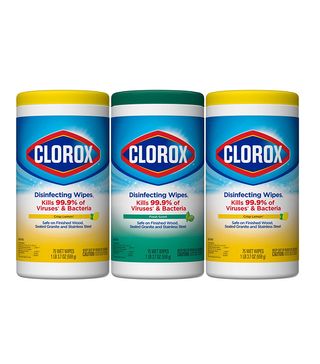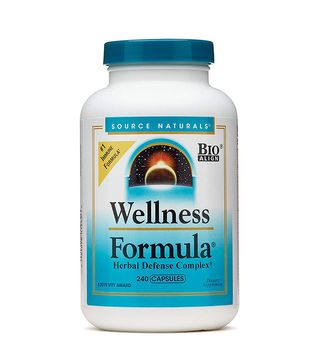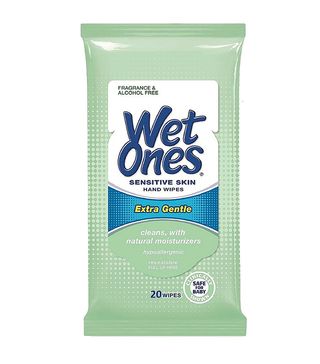How to Disinfect Your Whole House After the Flu, According to Germ Experts

Chances are you've been sick this cold and flu season or you know someone who has or both. Either way, being sick really is not an ideal situation for anyone. Your best bet for dodging any illnesses is to take the right steps for prevention.
The Centers for Disease Control and Prevention says some precautions you can take are to avoid close contact with sick people (and vice versa if you're sick); wash your hands often with soap and water; avoid touching your eyes, nose, and mouth; and clean and disinfect surfaces and objects that might be contaminated.
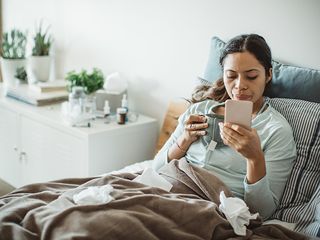
But what happens if you or someone you live with is sick, and how can you make sure your house is free of germs when the illness finally leaves? We turned to some germ experts for their best advice on how to disinfect your house after you or someone else has been sick and how to avoid the spread of germs in the first place.
1. Practice Good Hand Hygiene
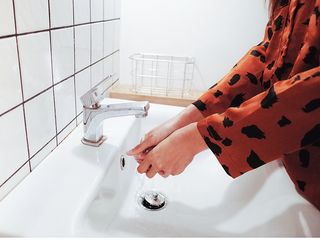
"[For] these common illnesses, like the cold, the Centers for Disease Control and Prevention says 80% of these common infections are transmitted by your hands. So it's really all about hand hygiene," says Charles Gerba, Ph.D., a microbiologist and professor at the University of Arizona, known to some as Dr. Germ. "Wash your hands, use hand sanitizers, and disinfect the high-touch areas—those seem to be the key."
Another watch-out for this is also being careful not to touch your face, eyes, nose, or mouth, which can spread germs.
2. Put a Hand Sanitizer Near the Front Door
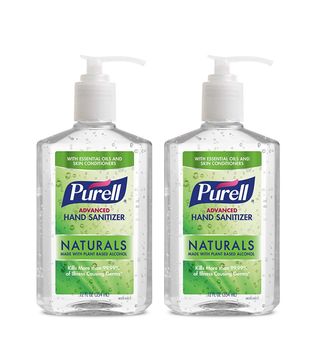
Gerba says putting a hand sanitizer by the front door can help prevent outside germs from coming inside. Sanitize your hands the moment you get through the door, or you can wash your hands first thing after coming home. "Because once you bring it into the house—we've done tracer studies with viruses—it's on about 90% of the surfaces we touch within about four hours because you're constantly touching things," he says. "The best thing is trying to get it right away as soon as you enter the house."
3. Pay Attention to Things You Touch Regularly
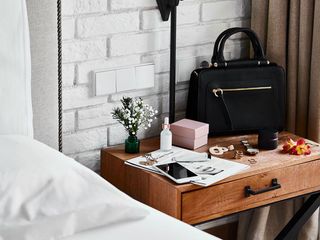
Michael Richardson, MD, of One Medical says you should pay attention to the things you regularly come into contact with (like doorknobs and keyboards) and disinfect them with a cleaner. "Depending on the bug, viruses can stay on surfaces and stay infected for a few hours to a week," he says.
4. Clean Areas That Are Close to Food

Richardson also recommends paying close attention to things like your dinner table, silverware, kitchen countertops, and other dining items. "Most of the common illnesses we pick up are from touching our mouth or eyes, or eating food that is contaminated, so try to keep your hands and food clean to avoid picking up any unwanted bugs," he says.
5. Don't Share Towels
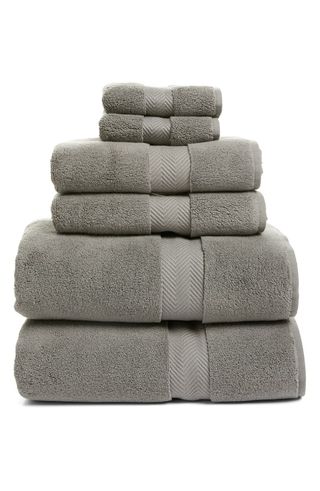
If you're sick, don't even think about sharing your bath towel with someone else, Gerba says. The same goes for kitchen and hand towels, which are more commonly shared. Gerba recommends that the sick person use the same towel throughout their illness and then wash it immediately after they get better.
6. Don't Share a Bed

If you share your bed with someone, it's pretty much a given that you're probably going to get sick if they are and vice versa. Gerba uses his own experience for this one. When his wife had a bad cold recently, he slept on the couch to avoid catching whatever she had.
7. Keep the Common Areas Tidy

If you live with others, it's important to keep the common spaces like the living room, kitchen, and bathroom clean. It's especially crucial before germs creep in. "The best time to clean your home is before you are even sick!" Richardson says. "By ensuring that common areas are clean, you can stop the spread of a virus before it even starts."
8. Clean Your Cleaning Supplies
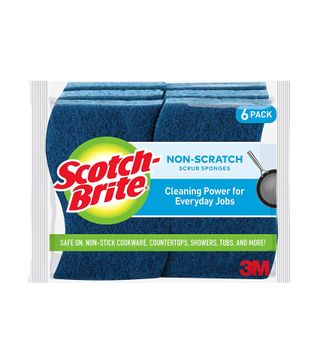
"Washing with soap and water should be fine for most cloths you use to clean your home," Richardson says. "You can also kill the germs on your sponge by nuking it in the microwave for about a minute. Just be sure it is soaked with water first to avoid it catching on fire."
9. Keep the Sick Person Confined

If possible, Gerba recommends that the sick person stays in the bedroom or one area of the home to avoid the spread of germs to other parts of the house. The bedroom is an ideal spot rather than the couch, which might be harder to disinfect because it doesn't have a layer that can be easily cleaned like bedding.
"We've been studying couches. Influenza will survive for two or three days in a couch," he explains. "A couch, when you sit down, is like a microbial whoopee cushion. It just throws up all the organisms in the air. You get them all over your face and into the air."
10. Change the sheets
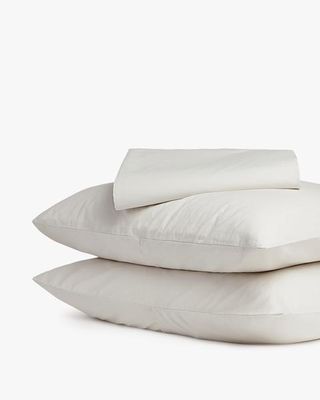
Like bath towels, Gerba recommends you keep the same sheets throughout the illness and then change them when you're in the clear.
11. Don't Share Phones

This might not be as common, since most people keep their phones to themselves, but if you're in the practice of handing your phone to others or vice versa, you should stop doing that when there's illness around.
And this is just another reminder to disinfect your phone on the regular. It's quite possibly the germiest thing you own.
12. Clean at the Right Time
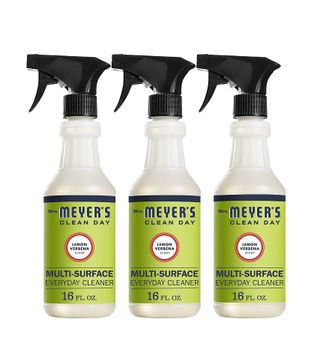
Gerba recommends you clean your home right when you or the person you live with isn't contagious anymore. Wash your sheets and towels, wipe down surfaces, throw away any tissues or other disposables used during the sickness.
13. And Don't Forget to Wear Gloves
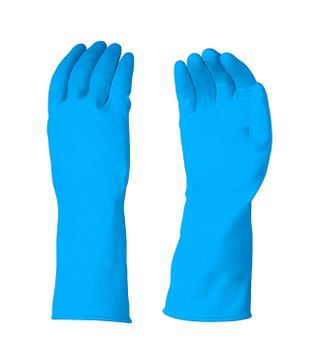
When you're disinfecting everything, it might be helpful to wear gloves. But Gerba says a general guideline is to wash your hands immediately after cleaning, and keep our hands away from your face.
Products to Fight the Flu
Want to arm yourself with some cold- and flu-fighting products? Take a look at some of our editor favorites:
Disclaimer
This article is provided for informational purposes only and is not intended to be used in the place of advice of your physician or other medical professionals. You should always consult with your doctor or healthcare provider first with any health-related questions.
Sarah is lifestyle writer and editor with over 10 years of experience covering health and wellness, interior design, food, beauty, and tech. Born and raised in Los Angeles, she attended New York University and lived in New York for 12 years before returning to L.A. in 2019. In addition to her work at Who What Wear, she held editor roles at Apartment Therapy, Real Simple, House Beautiful, Elle Decor, and The Bump (sister site of The Knot). She has a passion for health and wellness, but she especially loves writing about mental health. Her self-care routine consists of five things: a good workout, “me” time on the regular, an intriguing book/podcast/playlist to unwind after a long day, naps, and decorating her home.
